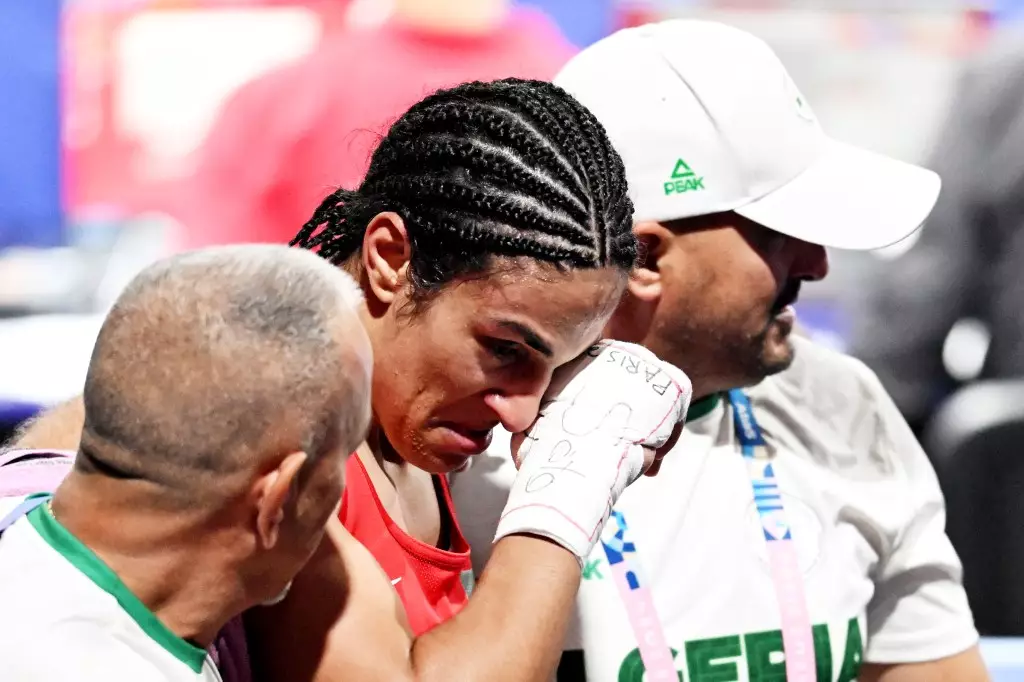The gender controversy surrounding Algerian boxer Imane Khelif at the 2024 Olympics has had a significant negative impact on both her and her family. In a recent interview, Khelif expressed her concerns about the effects of bullying on athletes and the importance of upholding Olympic values and regulations. She emphasized how bullying can have destructive consequences on a person’s mental well-being, thoughts, and spirit. This controversy has caused division and turmoil, prompting Khelif to call for an end to the mistreatment of athletes based on false information.
The dispute over Khelif’s gender eligibility arose after Italian boxer Angela Carini withdrew from their match, citing fears for her safety after a powerful blow to the face. Despite identifying and registering as a woman, Khelif faced disqualification from the Women’s World Championships in New Delhi in 2023 due to failed gender eligibility tests. This decision sparked outrage on social media, with influential figures like J.K. Rowling and Elon Musk wrongly claiming that Khelif is male. The International Boxing Association (IBA) has been adamant about the disqualification, leading to a media storm and backlash against Khelif.
Contrary to the IBA’s stance, the International Olympics Committee (IOC) has consistently supported Khelif and Taiwanese boxer Lin Yu-ting, affirming their eligibility as female athletes. IOC President Thomas Bach personally reached out to Khelif to express his backing amid the controversy. The IOC’s unwavering support has been crucial for Khelif, who has been affected by the negative attention and criticism from various parties. Khelif’s family has also been impacted by the situation, expressing concerns over her well-being and hoping for a positive outcome in the competition.
Despite the challenges and objections raised by boxing federations and Olympic committees, Khelif has continued to compete and achieve victories in the Olympics. She recently defeated Hungarian boxer Anna Luca Hamori and is set to face Thailand’s Janjaem Suwannapheng in the semi-final. However, the IBA’s persistent lobbying against Khelif and Lin’s participation, combined with the IOC’s scrutiny of the gender eligibility tests conducted in New Delhi, has added to the confusion and controversy surrounding the athletes.
Reports have surfaced speculating that Khelif and Lin may have Disorders in Sex Development (DSD), leading to chromosomal abnormalities and higher testosterone levels. While these genetic factors may impact their eligibility, the determination of gender goes beyond chromosomal makeup. The IBA’s medical expert suggested that both boxers had male chromosomes, but further details of the testing procedure have not been disclosed. The complexity of defining gender based on biological and genetic factors adds to the complexity of the situation.
Amid the intense scrutiny and controversy, Khelif has opted to stay away from social media, following the guidance of a mental health team during the Olympic Games. This decision reflects a recognition of the potential negative effects of online interactions and media coverage on athletes’ well-being. By focusing on her performance in the competition and maintaining a distance from social media, Khelif is prioritizing her mental health and resilience in the face of adversity.
The gender controversy surrounding Algerian boxer Imane Khelif has raised important questions about gender eligibility in sports and the treatment of athletes facing scrutiny. The impact of bullying and misinformation on Khelif and her family underscores the need for respect, empathy, and adherence to Olympic values. As Khelif continues to compete and navigate the challenges posed by the controversy, her resilience and determination serve as a testament to the strength of athletes in the face of adversity.

